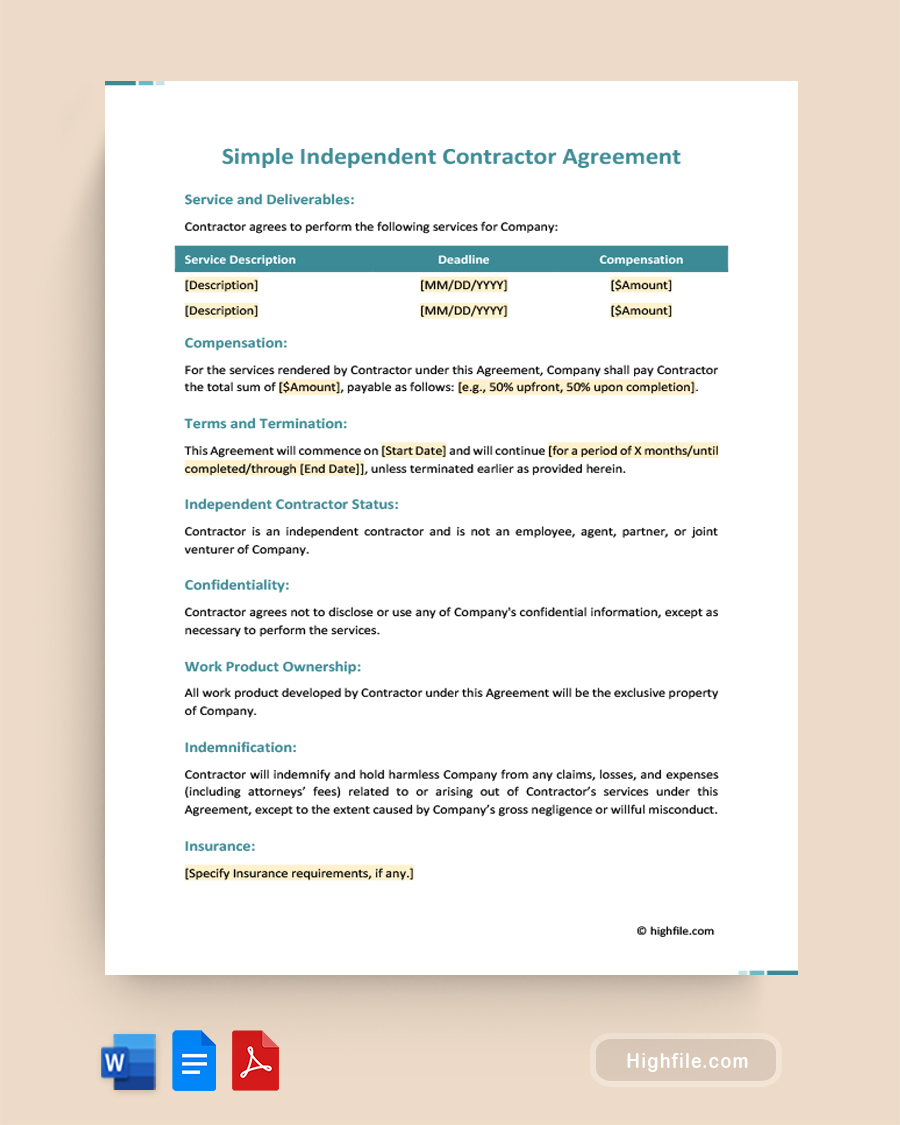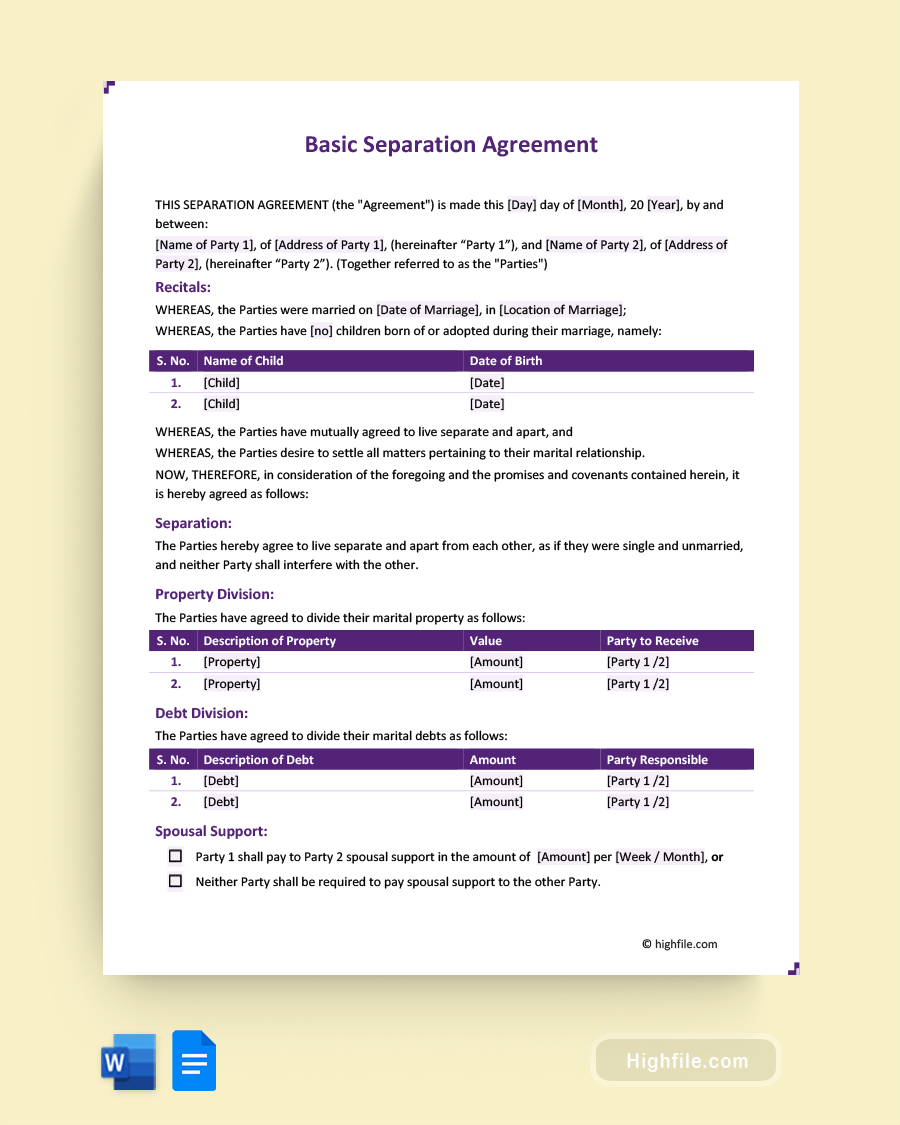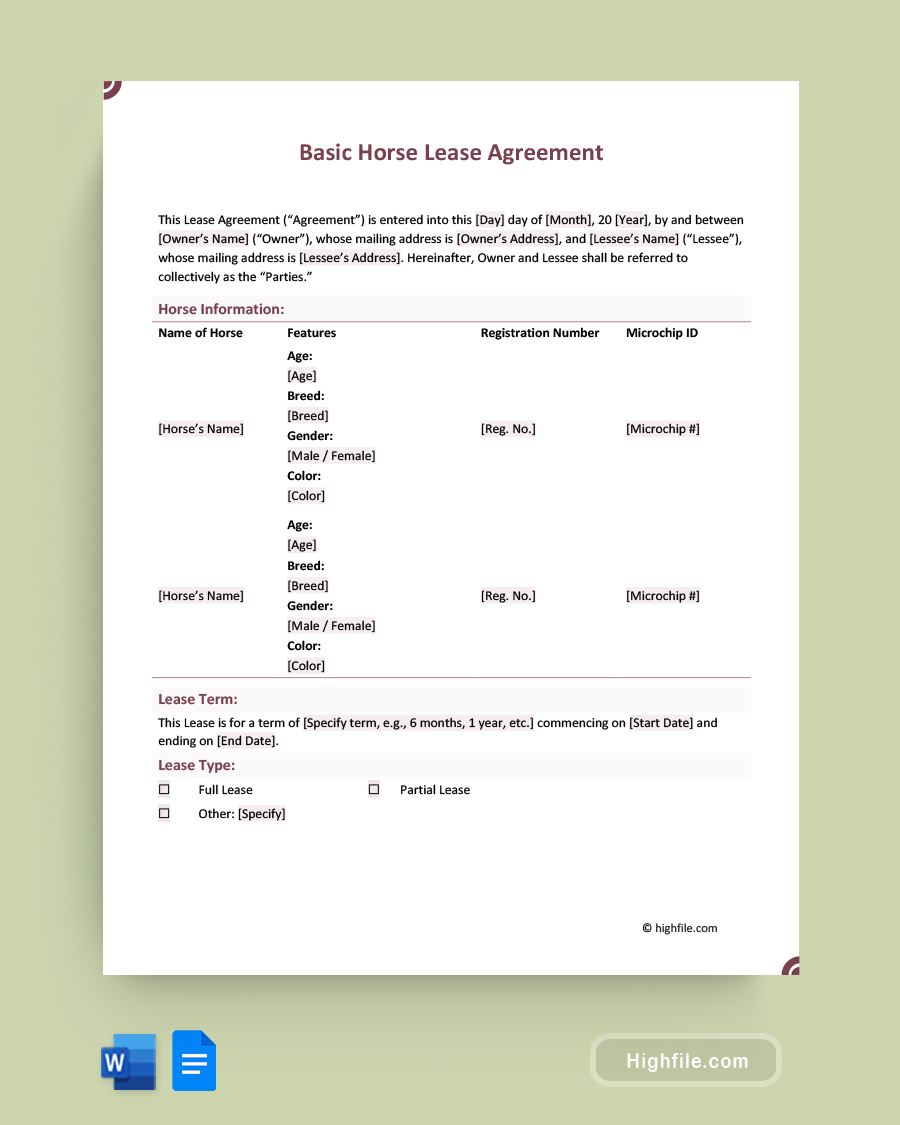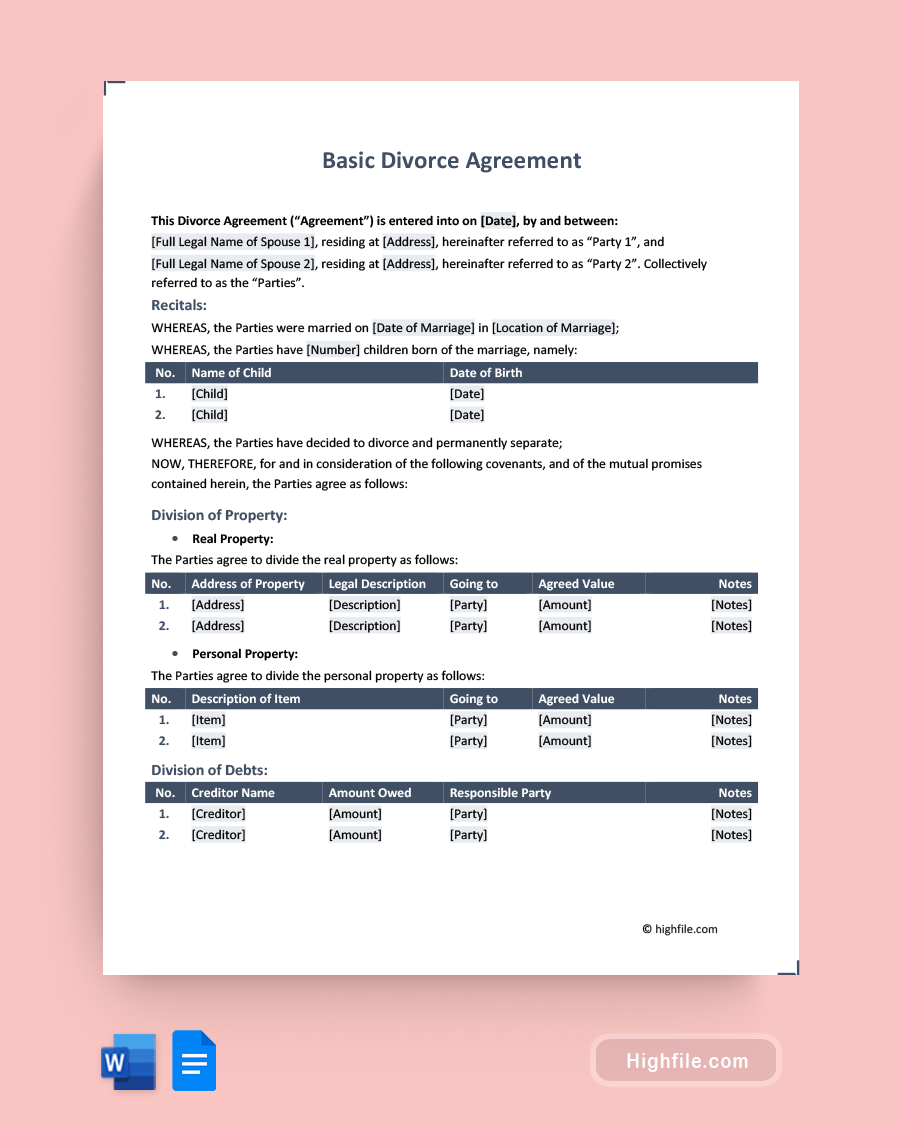Contents of the Template:
- Header and Introductory Details: This section provides space for the names of the contracting parties, the date, and the basic premise of the agreement.
- Recitals: A brief explanation of the intentions of both parties.
- Service Details: This segment allows for a clear breakdown of services, deadlines, and associated compensations.
- Compensation Information: It lays out the method and amount of payment.
- Terms of Contract: Here, you’ll define the contract’s start and end dates or conditions.
- Contractor Status Clarification: A crucial section to establish the contractor’s independence from the company.
- Confidentiality Clause: Protects company secrets and proprietary details.
- Ownership of Work Product: Stipulates who owns the rights to the work results.
- Indemnification and Insurance Details: Outlines responsibility in the event of issues or disputes.
- Non-compete and Non-solicitation Clauses: Protects company interests post-contract.
- Warranties: The guarantees provided by the contractor about the quality and legality of their work.
- Termination Conditions: Defines how the contract can end outside of the original terms.
- Notice Details: Sets guidelines for how official notices should be sent and received.
- General Provisions: A catch-all for any miscellaneous clauses or additional terms and conditions.
Why Use This Template:
- Clarity and Structure: The template lays out all terms in an organized manner, ensuring clear communication between parties.
- Customizability: Easily adaptable for various projects and contractor details.
- Legally Informed: While not a replacement for legal counsel, the template is constructed with typical legal considerations in mind.
- Time-Efficient: Helps in drafting an agreement quickly without starting from scratch.
Ideal For:
- Short-Term Projects: When hiring an expert for a specific project or task.
- Freelancers and Consultants: When businesses engage professionals on a per-project basis.
- Startups and Small Businesses: For those who might not have a legal team but need a structured agreement.
- Protecting Business Interests: When ensuring that the contractor won’t become a competitor or disclose proprietary information.
- Setting Clear Expectations: To define the scope, payment, and deliverables up front, avoiding future disputes.







